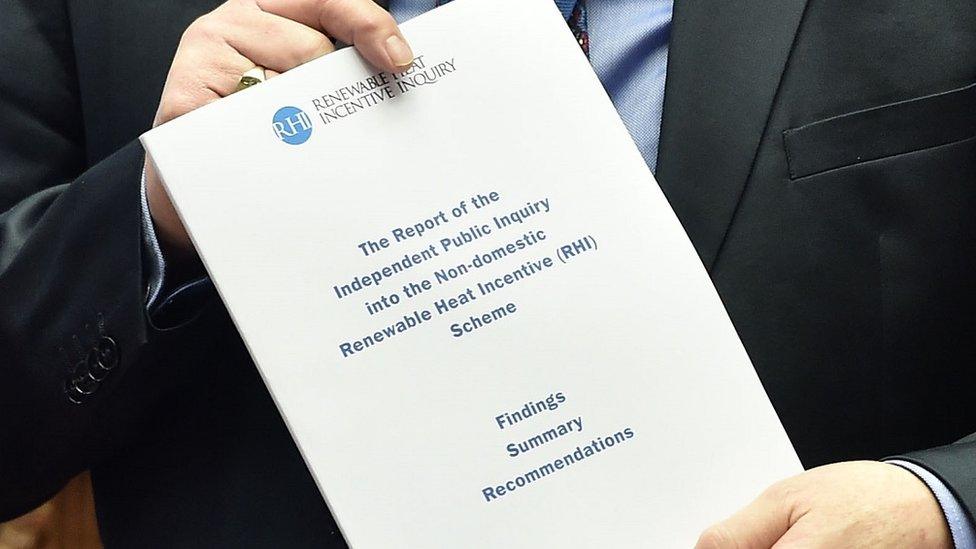Renewable Heat Incentive (RHI): Poultry farmer loses legal challenge over payment cuts
- Published
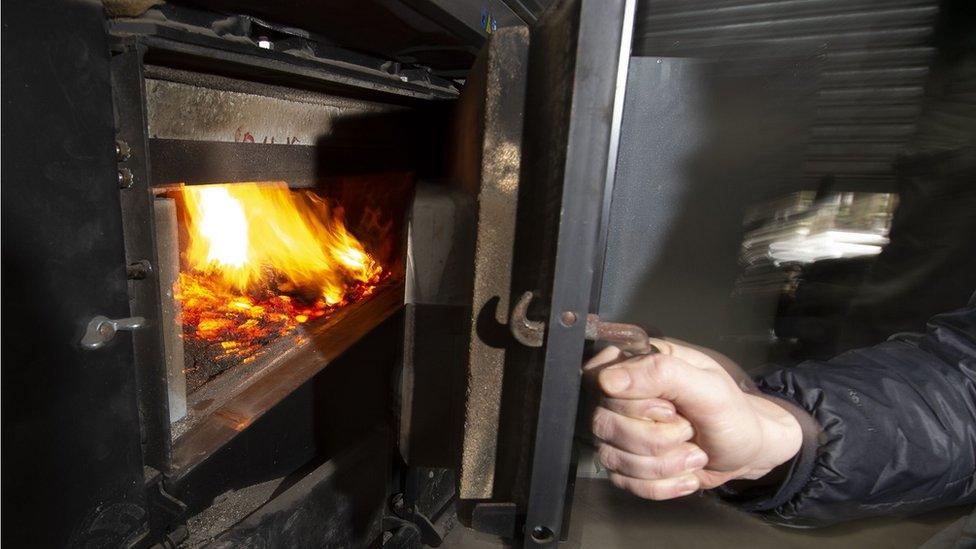
The RHI boiler scheme led to a three-year collapse of Stormont's devolved government
A County Antrim farmer who installed boilers under the flawed Renewable Heat Incentive (RHI) scheme has lost a legal challenge over cuts to payments.
Poultry farmer Thomas Forgrave was given leave for a judicial review of the 2019 legislation.
It had reduced the payments owners could receive from £13,000 to £2,000 per boiler.
He argued that people who had originally signed up had a right to the tariff rates guaranteed for 20 years.
The case was dismissed after the court was told Mr Forgrave had received more than £1.1m in payments since joining the scheme in 2014, following an outlay of just over £500,000.
The RHI scheme was set up to encourage businesses and other non-domestic users to switch to environmentally-friendly fuels.
But there were flaws in how the Northern Ireland scheme was constructed - subsidies were higher than fuel costs.
When potential costs to taxpayers emerged, the scheme became known as cash for ash, and helped lead to the collapse of Stormont in 2017.
The scheme closed to new entrants in 2016.
A public inquiry found a series of failings, but no evidence of illegal activity.
Mr Forgrave challenged the Northern Ireland (Regional Rates and Energy) Act 2019.
'Exemplary' applicant to the scheme.
He argued that the department had breached his right to property protected under European law.
Amid concern over reduced income rates, he has restructured bank loans taken to pay for the boilers he installed.
The judge said the key issue was whether the legislation imposed an unfair and excessive burden on Mr Forgrave, who was described in court as an "exemplary" applicant to the scheme.

£30m The amount Stormont had to pay to cover the actual overspend
£490-700m Cost of 20-year projected overspend before RHI was reformed
£38,000Average cost of the most popular-sized RHI boiler
£23,000Average annual subsidy payment per boiler before tariff cuts
£2,000Average annual subsidy payment after tariff cuts
2,128Total number of RHI boilers in NI, many in poultry industry

"I recognise that whilst the 2019 scheme is quite different from the 2012 original, the scheme remains in place following intervention to eliminate the flaws which were causing overcompensation," Mr Justice Humphreys said.
"I have therefore concluded that the fair balance called for between the general interest and the interest of the individual has been achieved in this case," he added.
- Published11 February 2021

- Published26 September 2020
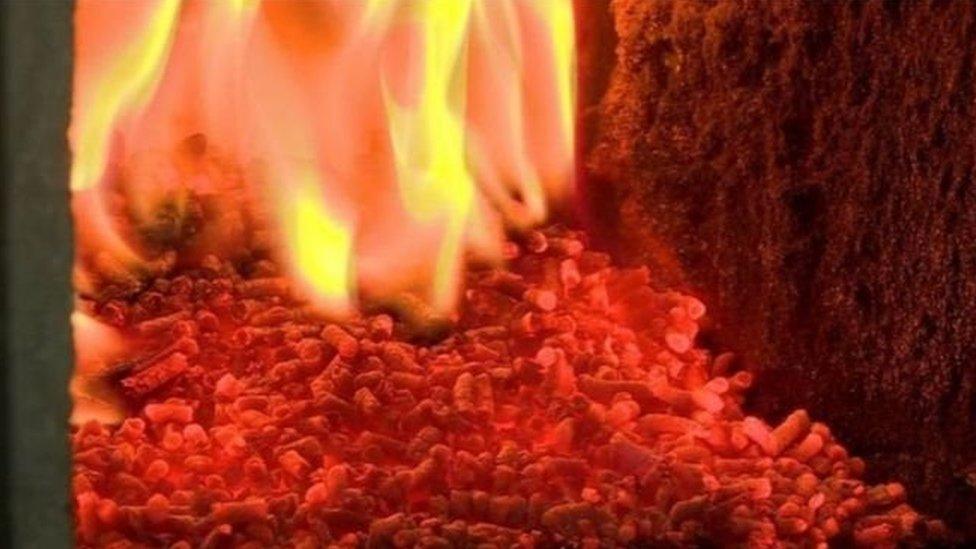
- Published7 September 2020
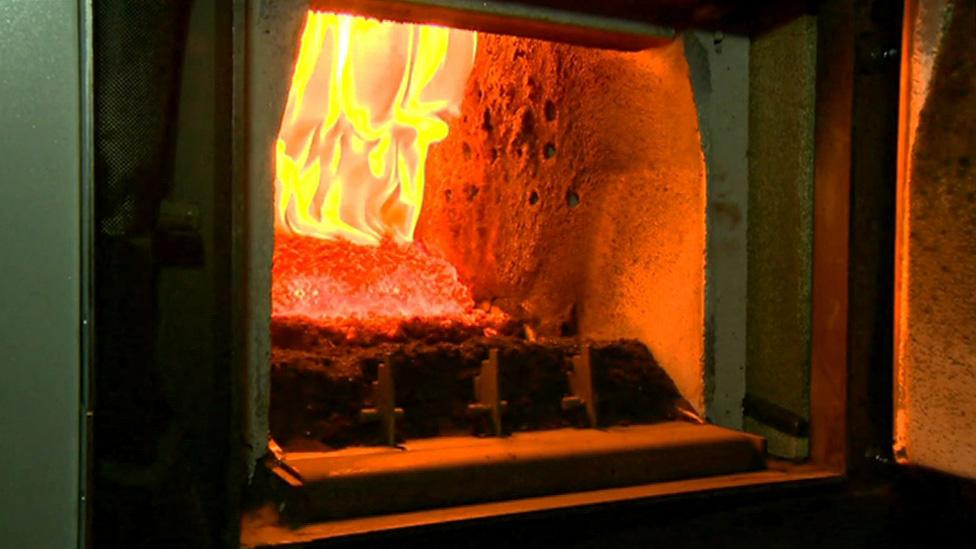
- Published13 March 2020
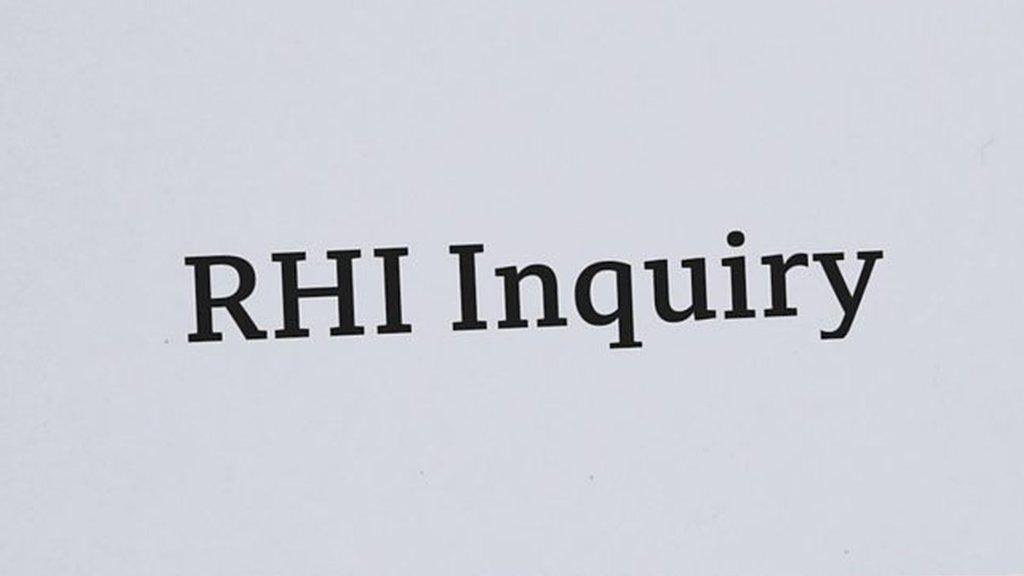
- Published13 March 2020
